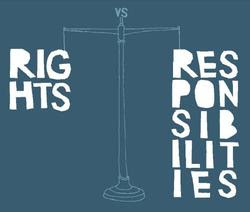Question 3: Digital Communication
 Q.3. THE INTERNET OF THINGS (IOT):
Q.3. THE INTERNET OF THINGS (IOT):
Is the inter-networking of physical devices, vehicles and is also referred to as "connected devices" and "smart devices", buildings, and other items embedded with electronics, software, sensors, actuators, and network connectivity that enable these objects to collect and exchange data.
This Phenomenon will affect businesses in South Africa by:
1. You’ll know where everything is at all times:
Moat companies rely on barcode tracking systems for inventory management but when almost all your devices, equipment and products are integrated in the same network, tracking and inventory management it will become so intuitive that you might not even have time to think about it. Instantly updating numbers will be at your disposal at all times and you will have the ability to tap into those metrics at any time you want.
2. You’ll have to keep track of even more data:
All those interconnected devices will open the floodgates to even more data than you currently track. You’ll learn in-depth metrics about your customers and their behaviors, your employees and how they work, and even the gritty details about how your business operates. This is all worthwhile information, but you need to be prepared to handle it, with data analysts and visualization software.
3. Everything will be faster:
With the IoT in place, everything will be faster, since interconnected devices could include everything from public transportation to traffic lights and cars. Thus you will have shorter commute times for yourself and your employees. More important for the impact on your organization, this means faster deliveries. On one hand, this will be a luxury and it will get you what you need faster, but it also means customers will expect and demand faster, more efficient service.
4. Energy and production will be cheaper:
Thanks to smart grid coordination, energy is going to be cheaper. Not only that, your machines will be able to find new and smoother ways to operate, and your maintenance routines may also become easier. The bottom line is that you’ll expend less money to produce your inventory, and most of your costs will likely decrease.
5. Real-time data will revolutionise the supplier relationship:
The Internet once was the "information superhighway," capable
of telling you how, what and why in a few clicks. Today, the Internet doesn't
just tell you how to solve your problems, it solves them before you know
there's a problem.
6. Remote work will become even more feasible:
Thanks to cloud-hosted software and readily portable devices like tablets, remote work is already a solid option for many professional positions. When IoT technology becomes commonplace, and all devices are manageable on one network, it will become even easier to manage everything remotely. Given one tablet and an Internet connection, you may be able to manage an entire production line, or an entire store. Most professionals won’t be prepared to cross this gap immediately, but it will be there as a possibility.
6. Device management may become nightmarishly complex.
There are a few potential downsides to IoT integration. One of the hardest to adapt to will be overall device management. You could have a hard time keeping all your integrated devices updated with the latest software and connected to the network; this will be both expensive and intense in terms of IT needs. Still, the benefits of increased productivity and reduced labor costs should balance this out.
7. Universality is potentially dangerous:
As with any futuristic sci-fi story, there is always that one character (usually wearing thick-rimmed glasses and working from his basement) who predicts the tragic consequences associated with a new technology. While the Internet of Things as it relates to small businesses might not translate into cyborgs yielding machine guns, there are some definite concerns with real-time access to information.
8. Productivity will increase.
As a general rule, your entire business will be able to operate more productively, with lower expenses. The cost of upgrading all your devices may be initially steep, but you’ll end up paying less for staff, and you should be capable of producing more products, thanks to the efficiency challenges your new technologies will have solved.
9. Some industries will disappear or radically change.
Many industries may fundamentally change when IoT becomes mainstream. Some will start to be in higher demand, and still others will become more efficient, and allow for higher profitability and more entry to new entrepreneurs. Others may even become obsolete or completely disappear; for example, the delivery and logistics industry could conceivably become almost completely automated.Pay close attention to how your industry develops, and be prepared for some major changes.
10. The web will only continue to thinker and expand, mostly for the good:
While increasing communication among machines might seem like an intimidating notion, the IoT's immediate effect – faster problem-solving – should help to soften cause for concern.
REFERENCES:
http://www.huffingtonpost.com/anna-johansson/8-ways-the-internet-of-th_b_11763836.html
https://compass.ups.com/internet-of-things-affect-business/




Comments
Post a Comment